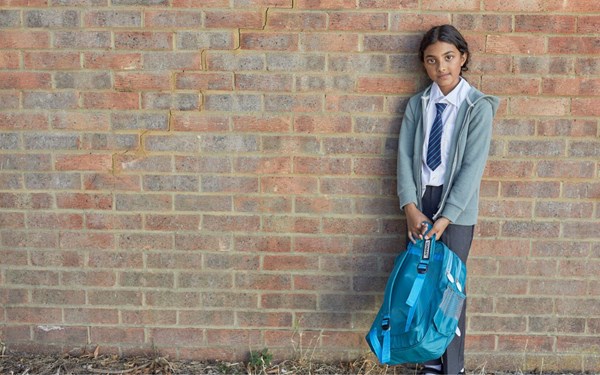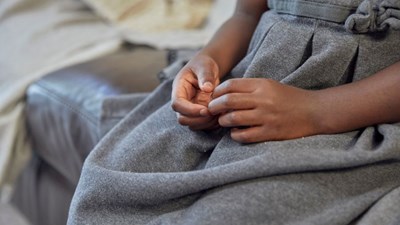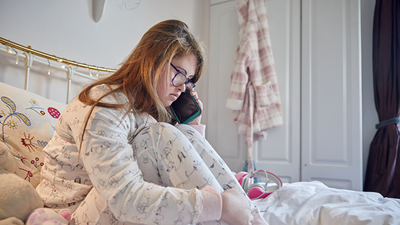Every child deserves to be loved, cared for and protected. But 1 in 10 children have experienced neglect1. That’s why we’ve got advice on the types and signs of neglect and what you can do if you’re worried about a child.
Worried about a child?
Contact our Helpline by calling 0808 800 5000 or emailing [email protected].
What is neglect?
Neglect is the ongoing failure to meet a child's basic needs and the most common form of child abuse2. A child might be left hungry or dirty, or without proper clothing, shelter, supervision or health care. This can put children and young people in danger. And it can also have long term effects on their physical and mental wellbeing.
Types of neglect
Neglect can be a lot of different things, which can make it hard to spot. But broadly speaking, there are 4 types of neglect.
- Physical neglect
A child's basic needs, such as food, clothing or shelter, are not met or they aren't properly supervised or kept safe. - Educational neglect
A parent doesn't ensure their child is given an education. - Emotional neglect
A child doesn't get the nurture and stimulation they need. This could be through ignoring, humiliating, intimidating or isolating them. - Medical neglect
A child isn't given proper health care. This includes dental care and refusing or ignoring medical recommendations.
Signs of neglect
Neglect can be really difficult to spot. Having one of the signs doesn't necessarily mean a child is being neglected. But if you notice multiple signs that last for a while, they might show there's a serious problem. Children and young people who are neglected might have:
- being smelly or dirty
- being hungry or not given money for food
- having unwashed clothes
- having the wrong clothing, such as no warm clothes in winter
- having frequent and untreated nappy rash in infants.
- anaemia
- body issues, such as poor muscle tone or prominent joints
- medical or dental issues
- missed medical appointments, such as for vaccinations
- not given the correct medicines
- poor language or social skills
- regular illness or infections
- repeated accidental injuries, often caused by lack of supervision
- skin issues, such as sores, rashes, flea bites, scabies or ringworm
- thin or swollen tummy
- tiredness
- untreated injuries
- weight or growth issues.
- living in an unsuitable home environment, such as having no heating
- being left alone for a long time
- taking on the role of carer for other family members.
- becoming clingy
- becoming aggressive
- being withdrawn, depressed or anxious
- changes in eating habits
- displaying obsessive behaviour
- finding it hard to concentrate or take part in activities
- missing school
- showing signs of self-harm
- using drugs or alcohol.
A child might not understand they're being neglected. If you're worried about a child and want to talk to them, we have advice on having difficult conversations.
Worried about a child?
You can contact the NSPCC Helpline by calling 0808 800 5000, emailing [email protected] or completing our report abuse online form.
If a child reveals abuse
A child who is being neglected might not realise what’s happening is wrong. And they might even blame themselves. If a child talks to you about neglect it’s important to:
- listen carefully to what they're saying
- let them know they've done the right thing by telling you
- tell them it's not their fault
- say you'll take them seriously
- don't confront the alleged abuser
- explain what you'll do next
- report what the child has told you as soon as possible.
Report abuse
You can contact the NSPCC Helpline by calling 0808 800 5000, emailing [email protected] or completing our report abuse online form.
Effects of neglect
Neglect changes childhood. Children who've been neglected might experience short-term and long-term effects. These can include:
- problems with brain development
- taking risks, like running away from home, using drugs and alcohol or breaking the law
- getting into dangerous relationships
- difficulty with relationships later in life, including with their own children
- a higher chance of having mental health problems, including depression.
Who's at risk
Any child can suffer neglect. But some children and young people are more at risk than others. These include children who:
- are born prematurely
- have a disability
- have complex health needs
- are in care
- are seeking asylum.
Other problems and life circumstances can make it harder for parents and carers to meet their child's needs. When one or more of these issues occur, it can put a child at risk of neglect.
Children living in home where there's domestic abuse are more likely to experience other types of abuse and neglect.
Children living with parents with alcohol or drug problems can be more at risk of harm and neglect. These issues can make it difficult for parents and carers to look after their children.
Being abused or neglected as child doesn't mean someone will go on to harm others. But a lot of people who abuse or neglect children have experienced it themselves. We've got support for adults who faced abuse as children.
Just because a parent has learning disabilities or difficulties it doesn't mean they aren't a great mum or dad. But some parents can struggle to understand what they need to do to provide proper care for their child. In some cases, this can lead to a child being neglected.
Most parents or carers with a mental health problem give their children the love, care and support they need. But some might struggle at certain times. This can mean children might be at a higher risk of abuse or neglect.
Housing and money worries can put a lot of stress on parents. This can stop them being able to provide the practical and emotional support that children need, which can lead to neglect.
Family, friends, neighbours or the wider community can give parents the support they need to help keep their child safe. But sometimes parents don't have this support which can put children at a higher risk of neglect.
Support
For parents and carers
We run therapeutic services for families under pressure:
- Building Blocks
- Parents Under Pressure™.
Find out more about all our services, including how to get in touch with ones in your area.
Family Lives offer a free and confidential helpline service for families. You can talk to them about any aspect of parenting and family life. Call 0808 800 2222 or email [email protected].
Worried about a child?
You can contact the NSPCC Helpline by calling 0808 800 5000, emailing [email protected] or completing our report abuse online form.
For children and young people
How Childline can help
Children and young people can get support and advice about neglect from Childline if they're facing neglect or if they're worried about a friend or family member. Whether it's happening now or happened in the past, Childline can be contacted 24/7. Calls to 0800 1111 are free and confidential. Children can also contact Childline online.
More support for you and your child
References
-
Radford, L. et al (2011) Child abuse and neglect in the UK today. London: NSPCC.
-
Sources: Based on data from Department for Education, StatsWales, Children's Social Care Statistics (NI), and Scottish Government and Brandon, M. et al. (2013) Neglect and serious case reviews: a report from the university of East Anglia commissioned by NSPCC (PDF).





